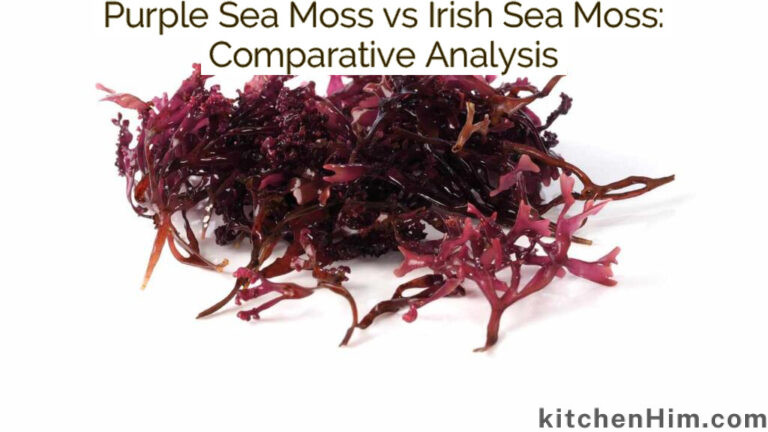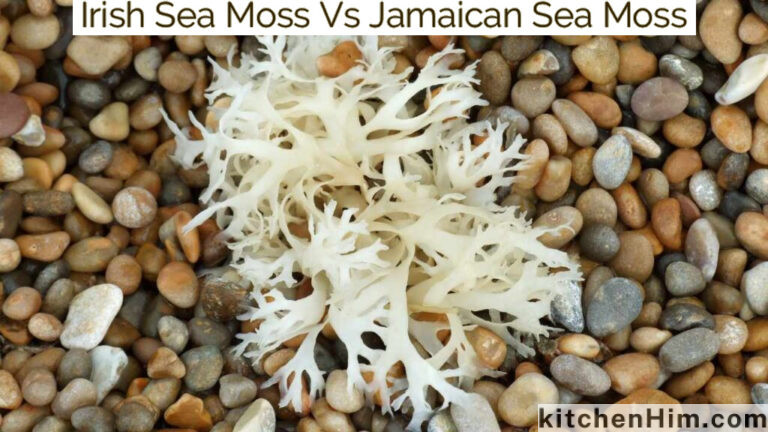When making the decision to install new flooring, there are many different types of flooring from which to choose. Two of the most popular types are vinyl and hybrid flooring. This article examines the differences between these two types of flooring, including cost, installation process, durability, and maintenance.
Key Takeaways
In conclusion, vinyl and hybrid flooring are two popular options for modern flooring solutions. Key differences between the two include cost, installation, durability, maintenance, lifespan, customization, and design. Vinyl flooring is a cost-effective and easy to install option, but tends to be less durable than hybrid flooring. Hybrid flooring is more expensive and requires professional installation, but is more durable and easier to maintain with a longer lifespan. Hybrid flooring offers more customization and design options than vinyl.
Ultimately, the choice of vinyl or hybrid flooring depends on the individual’s budget, lifestyle, and desired level of maintenance.
Definition of Vinyl and Hybrid Flooring
Vinyl and hybrid flooring are both types of floor coverings that possess distinct characteristics. Vinyl is a synthetic flooring material made from polyvinyl chloride (PVC) resin. It has the ability to provide a water-resistant surface that is stain-resistant and easy to clean. Hybrid flooring is a combination of materials that includes both natural and synthetic components. It is available in a variety of colors and textures, and can be installed in a variety of ways.
Vinyl flooring is typically less expensive than hybrid flooring and is available in a variety of colors and patterns. It is also typically easy to install and maintain. However, it is not as durable as hybrid flooring. It also has a tendency to expand and contract, making it less suitable for areas that are prone to fluctuations in temperature and humidity.
Hybrid flooring is typically more expensive than vinyl flooring but offers enhanced durability and stability. It is also available in a wide variety of colors and textures and can be installed in a variety of ways. Hybrid flooring is generally more resistant to scratches and stains, and is less likely to expand and contract due to fluctuations in temperature and humidity. Additionally, hybrid flooring is typically easier to clean and maintain than vinyl flooring.
When determining which type of flooring to install, it is important to consider the needs of the space and the budget. Vinyl flooring is an affordable option that is easy to install and maintain, but is not as durable or long-lasting as hybrid flooring. Hybrid flooring is a more expensive option, but it offers enhanced durability and stability. When choosing between the two, it is important to consider the budget, the needs of the space, and the desired outcome.
Cost Difference Between Vinyl and Hybrid Flooring
The cost associated with installation and maintenance of the two types of flooring can vary significantly. Vinyl flooring tends to be a more affordable option in comparison to hybrid flooring. In terms of installation, vinyl flooring can be more affordable due to its ease of installation. Unlike hybrid flooring, vinyl flooring is available in sheet form, which eliminates the need for individual tiles or planks that need to be installed. As a result, the labour costs associated with installation can be reduced significantly.
In terms of maintenance, vinyl flooring is generally considered to be a low-maintenance option, while hybrid flooring requires more frequent attention. Vinyl floors require little more than occasional sweeping and mopping, while hybrid floors may require the occasional refinishing or resealing. This increased maintenance cost is something to consider when comparing the two flooring options.
In terms of overall cost, vinyl flooring is generally the more affordable option. While this may not always be the case depending on the type of vinyl flooring chosen, vinyl is generally more affordable than hybrid flooring due to its ease of installation and low maintenance requirements. However, the cost of installation and maintenance may not always be the deciding factor when choosing between the two flooring options, as other factors such as appearance and durability can also be taken into consideration.
Installation Process of Vinyl and Hybrid Flooring
Installation of both types of flooring can vary significantly, with each having its own unique process. Vinyl flooring is a popular choice due to its low cost and quick installation process. It is usually installed as a floating floor, meaning that no adhesive or nails are used for installation. Instead, the vinyl planks are connected using an interlocking system or tongue-and-groove technology, which makes it relatively easy to install. Additionally, vinyl flooring can be installed directly over existing flooring, which makes it a good choice for those looking for a quick and inexpensive flooring solution.
Hybrid flooring, on the other hand, is a relatively new flooring material that combines the best features of both laminate and vinyl flooring. It is available in planks, tiles, or sheets, and can be installed using a variety of methods. Some methods are similar to vinyl flooring, such as the floating installation, while others require the use of adhesive. Additionally, hybrid flooring can be glued or nailed down, which may require additional tools and experience.
Both types of flooring have their advantages and disadvantages. Vinyl flooring is often cheaper and can be installed quickly, while hybrid flooring is more durable and offers a wider range of design options. Ultimately, the choice between vinyl and hybrid flooring will depend on the individual’s needs and budget.
Durability of Vinyl and Hybrid Flooring
Both materials offer varying levels of durability, with hybrid flooring being the more durable of the two. Vinyl flooring is constructed from layers of PVC and a printed vinyl layer, while hybrid flooring is engineered with an SPC or WPC core, making it more resistant to indentations and other wear-and-tear. Hybrid flooring is also designed to be more resistant to water damage than vinyl flooring, making it a good option for areas that are prone to moisture. In terms of lifespan, vinyl flooring typically lasts between 10 and 20 years, while hybrid flooring has an expected lifespan of 25 years or more.
When it comes to cleaning, vinyl flooring is easier to maintain than hybrid flooring. It is often enough to sweep and mop the floor with a damp cloth, and a mild detergent or cleaning solution can be used if necessary. For hybrid flooring, however, it is important to use a specialized cleaning solution to keep the floor looking its best.
Vinyl and hybrid flooring each have their own advantages and disadvantages in terms of durability. Vinyl flooring is often more affordable and easier to maintain, but is not as durable as hybrid flooring. Hybrid flooring is more resistant to wear and damage, but may require specialized cleaning solutions and can be more expensive. Ultimately, it is important to consider the specific needs of the space to determine which type of flooring is best suited for the situation.
Maintenance of Vinyl and Hybrid Flooring
Maintenance requirements for the two materials differ significantly. Vinyl flooring is a low-maintenance option that is easy to keep clean. Regular sweeping and occasional damp mopping are all that is required. It is also quite resistant to scratches and stains, making it a good choice for busy households. On the other hand, hybrid flooring is slightly more difficult to maintain. It requires regular sweeping and regular damp mopping with a neutral pH cleaner, as well as occasional spot cleaning and buffing. The floor must also be resealed after a few years to keep it looking its best.
Here is a quick overview of how to properly maintain vinyl and hybrid flooring:
- Vinyl:
- Sweep regularly.
- Damp mop occasionally.
- Clean any spills right away.
- Use mats and rugs to protect the floor from scratches and stains.
- Hybrid:
- Sweep regularly.
- Damp mop with neutral pH cleaner.
- Spot clean and buff.
- Re-seal every few years.
Frequently Asked Questions
What Are the Environmental Benefits of Vinyl or Hybrid Flooring?
Vinyl and hybrid flooring are two popular flooring options due to their durability and ease of maintenance. Both flooring types offer significant environmental benefits, such as being low-emitting materials that can improve air quality indoors. Vinyl flooring is made from polyvinyl chloride (PVC), a renewable resource that is 100% recyclable. Hybrid flooring is composed of several layers including a waterproof layer, which helps to reduce the amount of moisture seeping into the floor and potential mold growth. Hybrid flooring is also known to be more durable than vinyl, resulting in a longer lifespan and less need for replacement. In addition, both types of flooring require minimal energy and resources to produce and install.
Are Vinyl and Hybrid Flooring Safe for Pets?
Vinyl and hybrid flooring can be safe for pets so long as certain considerations are taken. Both types of flooring have a smooth, non-porous surface that can make it easier to clean up messes left by pets. Vinyl flooring typically has a polyurethane wear layer that provides additional durability and scratch-resistance. Hybrid flooring is a combination of vinyl and laminate that provides the characteristics of both materials, and can also provide extra durability and scratch-resistance. However, it is important to consider the installation of both types of flooring, as it can affect the safety and comfort of pets. For example, if vinyl or hybrid flooring is installed without a proper underlayment, it can be cold and hard on pet paws.
Can Vinyl and Hybrid Flooring Be Installed Over Existing Flooring?
Both vinyl and hybrid flooring can be installed over existing flooring as long as the existing flooring is in good condition and level. It is important to ensure that the existing flooring does not contain asbestos and is properly cleaned and prepped before installation. It is also important to check that the existing flooring is suitable for vinyl or hybrid installation. If the existing flooring is not suitable, then it will need to be removed before installation can occur. If the existing flooring is suitable, then installation is possible. However, it is always recommended to seek the advice of a professional before doing so.
What Are the Soundproofing Qualities of Vinyl and Hybrid Flooring?
Vinyl and hybrid flooring have differing levels of soundproofing qualities. Vinyl flooring absorbs sound better than hybrid flooring, making it a better choice for homeowners looking to reduce the amount of sound that travels throughout the house. Hybrid flooring, however, is better at reducing the amount of noise that is transferred between floors, making it an ideal choice for multi-level homes. Generally, vinyl flooring is the preferred choice for soundproofing due to its thicker construction and sound-absorbing properties.
How Does the Color of Vinyl and Hybrid Flooring Hold up Over Time?
Vinyl and hybrid flooring are both susceptible to fading over time, although hybrid flooring is more resistant. Vinyl flooring that is installed in areas that receive direct sunlight is particularly at risk for fading. The level of fading depends on the type of vinyl used, the intensity of the UV rays, and the amount of time the flooring is exposed to sunlight. Vinyl flooring may also fade if it is not cleaned properly, as dirt and debris can cause the color to become dull. Hybrid flooring, on the other hand, is more resistant to fading due to its added layer of protection. Regular cleaning and maintenance can help to preserve the color of vinyl and hybrid floors.
Conclusion
In conclusion, vinyl and hybrid flooring are two popular options for modern flooring solutions. Vinyl flooring is a cost-effective and easy to install option, but may not be as durable as hybrid flooring. Hybrid flooring is more expensive and requires professional installation, but it is more durable and easier to maintain. Ultimately, the choice of vinyl or hybrid flooring depends on the individual’s budget, lifestyle, and desired level of maintenance.




